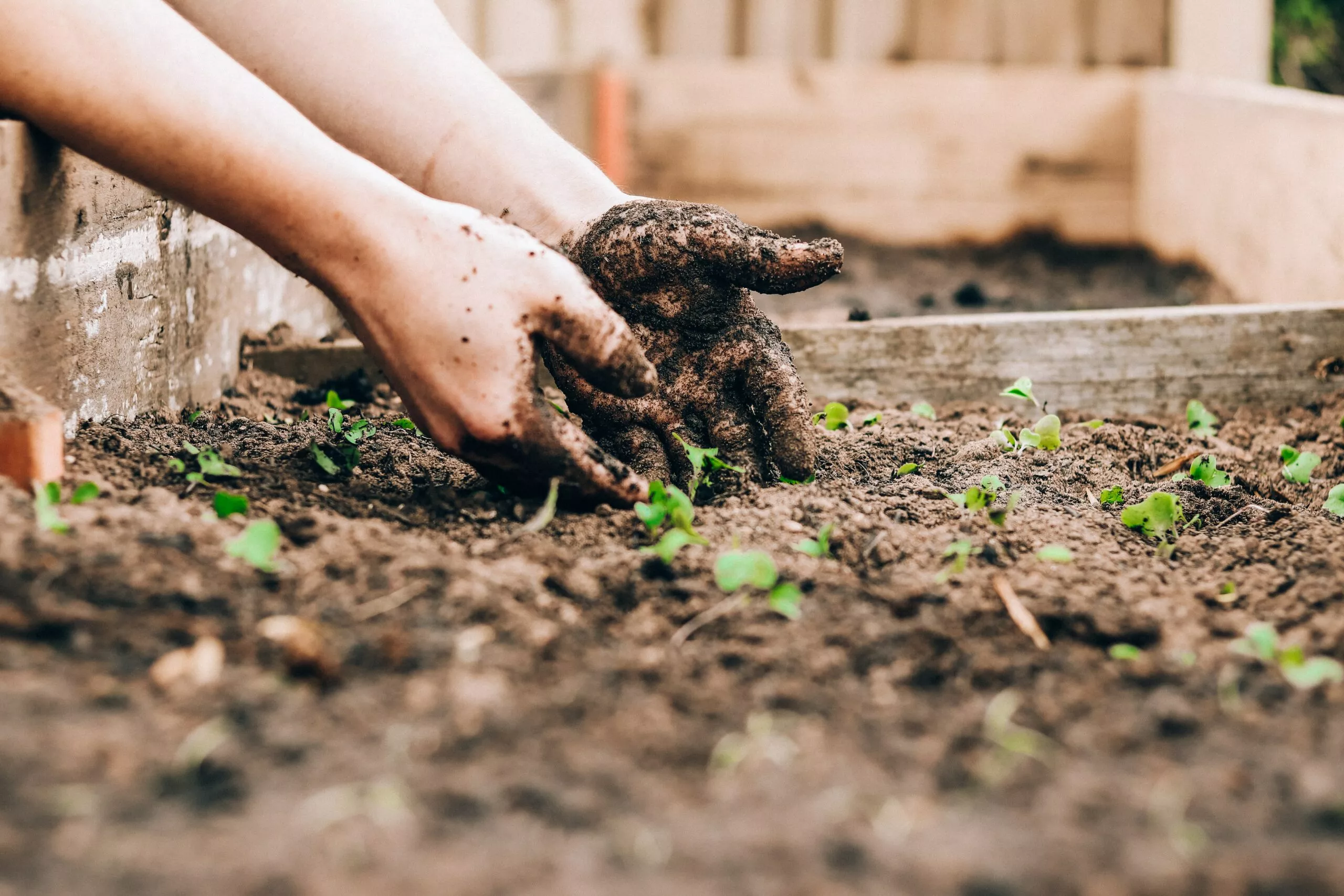Every year ORFC welcomes new entrants to the movement, and #ORFC23 will include online and in-person sessions for those new to the conference. Elektra Owen, a grower, chef, food justice researcher, and ORFC first-timer shares her thoughts ahead of #ORFC23. Join ORFC online before tickets sell out!
How might we centre food justice?
The harvest lists of late look somewhat shorter than those of summer’s plenty, though as it turns out, no less bountiful, or heavy for that matter. Each year, dense spoils of autumn and winter catch me off-guard: I’m busy mourning Septembers abundance, adjusting my taste buds, regretfully letting another year go by without time to preserve the last tomatoes – and then, as if like that – in walks squash in riots of red, amber and orange; followed by the distinct bitterness of mustards, radicchio, rocket and watercress; trailed by the silky nuttiness of celeriac, and then in sneaks the Hakurei turnips who bring the party. Harvesting our carrots is worse than herding cats, but their sweetness absolves them, and then there’s cavolo in iron-green crinkle-cut attire, and the leeks that, this year, have turned me into a kid in a candy shop.
I could write many a love letter to many a crop though I’m not sure you veg-heads need convincing. I started writing this with the clichéd adage of when the winter draws in: the nights feel closer, the garden slows, and time opens for quiet contemplation – all very well, though the bounty of winter’s treasures in market gardens across the UK says otherwise. As it’s mostly too wet, too dark, too cold for most jobs in the field, we instead turn our attention to tidying things up post-season, and planning for the next: organising the tool shed, crop planning, eagerly arranging – and then rearranging – the seeds, and having many a meeting to reflect on the season gone by.
I’m not sure ORFC this year will be much about quiet contemplation either – sure, I hope there’ll be space for it, but I’ve got that building-buzz of a long-overdue get-together of all those ardently committed to food and farming in all its rich and complex diversity (not just the veg-heads!) This year will be the first I attend ORFC in person – the past two years have been held online and, whilst they’ve been far from disappointing, I’m excited to hear the scuffle of chairs, and clamour from a room full of people gathered with intention. For anyone on this side of the equator, ORFC lifts the deepest, darkest days of January – it’s blues-busting, that’s for sure, and each year I’ve come away with more fire in my belly.
For the past three years I’ve been doing chef work alongside my work at a market garden trying to figure out a way that combines these affections whilst wanting to challenge an industry that all too often makes ‘good food’ both elite and aspirational. I’ve gotten somewhat disenchanted by our obsession with ‘good food’: centering only the beautiful parts of our food system depoliticises it, and the solutions to an unjust system become apolitical – ‘palatability becomes the enemy of justice’. I’m currently writing a dissertation for my MSc in Regenerative Food, Farming and Enterprise at Schumacher College. Starting at the beginning of this year, I’ve been researching the widening gap that exists between sustainable/agroecological/regenerative farming methods and the affordability of its produce: exploring who is taking responsibility for narrowing this gap (and how). Largely, I’m looking at how grassroots networks are cultivating food justice in the face of government inaction, and how this work proves effective.
The true cost of food is a hot topic: we know food can’t get any cheaper, so exploring how it becomes more accessible, whilst ensuring farmers who farm in an agroecological way be paid a real living wage, is thorny – especially as our food system is largely extractive and based on the exploitation of labour. For me, it lends itself to a debilitating overwhelm, realising the scale of change that is sorely needed. Though it is in these places of darkness and abstraction that I soften to the everyday, incremental change in the work of justice. The everyday determined demands for justice enacted at the grassroots level are far from giving up on larger-scale systems change, but instead serve as the evidence for not only why we need change, but what that change might look like.
And so, this ORFC I’m particularly interested to see how food justice is centred in our conversations, recognising that at the heart of this work is a connectedness between the micro and macro. How as Raj Patel and Rupa Marya so urgently and eloquently express in their recent book – Inflamed; the daily inflammation we feel in our bodies is part of a world inflamed – and must then, be treated as such.
My name is Elektra Owen, I’ve been working at Springtail Market Garden in Dorset for the past three years, as well as working as a private chef. More recently I’ve also been working in school’s delivery workshops around food and farming, I’m excited about the role education and imagination plays in this movement. I’m soon to complete an MSc at Schumacher College where I’ve been researching food access and justice.

